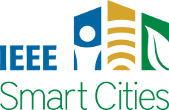Foreword: The Importance of Standards in Smart Cities
Written by Bernard Fong
Collective efforts in defining standards for smart cities have been gaining popularity over the past couple of years due to the fact that many parts of smart city development entail the integration of new technologies into existing infrastructures and systems.
For example, Lai et al. reported a number of important initiatives in technical standards for smart cities in August 2020 [1]. This was echoed by the ISO and IEC joint efforts in defining the ISO/IEC JTC 1/WG 11 that developed the ISO/IEC 30145-3:2020 standard with frameworks that support decision making for smart cities [2]. Many of these standards are aimed at making smart cities greener; for example, waste recycling processes and standards are vitally important in the context of environmental sustainability [3]. In a broader context, standards for smart cities often entail putting several services together, like smart girds for energy optimization in association with smart mobility [4], which would in turn allow smart ambulances to travel across a smart city within the shortest possible time [5].
One of the important aspects of standards in smart cities is to facilitate the successful integration of new and old technologies when making cities smarter. In particular, interoperability becomes a major issue from an economy’s viewpoint [6]. Very often, the development of standards needs to thoroughly assess their implications for social policy at both the design and implementation levels. Appropriate standards make the delivery of various services much easier, particularly for providing services to visitors moving from one city to another.
The June Special Issue is the first of a two-part series on this important topic of standards in smart cities. The first three feature articles introduce the IEEE P3166, P7010 and a systems engineering approach to smart city planning inspired by IEEE P2784. Some recommendations on practices will be discussed. The last article presents a case study on people-centric evaluation framework for smart cities. More case studies and recommendations will be featured in the July 2022 IEEE Smart Cities eNewsletter.
Bernard Fong
IEEE Smart Cities eNewsletter Managing Editor
References
- Lai, C. S., Jia, Y., Dong, Z., et al. (2020). A review of technical standards for smart cities. Clean Technologies, 2(3), 290-310.
- ISO/IEC 30145-3:2020 Information technology - Smart City ICT reference framework - Part 3: Smart city engineering framework
- Mohammadi, M., & Al-Fuqaha, A. (2018). Enabling cognitive smart cities using big data and machine learning: Approaches and challenges. IEEE Communications Magazine, 56(2), 94-101.
- Lai, C. S., Lai, L. L., & Lai, Q. H. (2021). Smart grids and big data analytics for smart cities. Springer.
- Fong, B., Fong, A. C. M., & Li, C. K. (2018). Internet of things in smart ambulance and emergency medicine. Internet of Things A to Z: Technologies and Applications
- Lv, Z., Chen, D., & Li, J. (2021). Novel system design and implementation for the smart city vertical market. IEEE Communications Magazine, 59(4), 126-131.
This article was edited by Loi Lei Lai
To view all articles in this issue, please go to June 2022 eNewsletter. For a downloadable copy, please visit the IEEE Smart Cities Resource Center.

To have the eNewsletter delivered monthly to your inbox, join the IEEE Smart Cities Community.
Past Issues
To view archived articles, and issues, which deliver rich insight into the forces shaping the future of the smart cities. Older eNewsletter can be found here. To download full issues, visit the publications section of the IEEE Smart Cities Resource Center.



